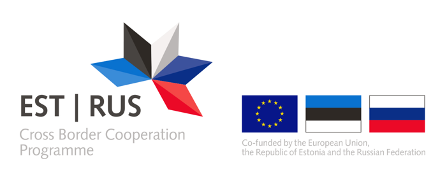-
Faculty of Arts and HumanitiesJakobi 2, r 116-121 51005 Tartu linn, Tartu linn, Tartumaa ESTJakobi 2 51005 Tartu linn, Tartu linn, Tartumaa ESTJakobi 2, IV korrus 51005 Tartu linn, Tartu linn, Tartumaa ESTJakobi 2, III korrus, ruumid 302-337 51005 Tartu linn, Tartu linn, Tartumaa ESTÜlikooli 16 51003 Tartu linn, Tartu linn, Tartumaa ESTLossi 3 51003 Tartu linn, Tartu linn, Tartumaa ESTÜlikooli 18 50090 Tartu linn, Tartu linn, Tartumaa ESTPosti 1 71004 Viljandi linn, Viljandimaa ESTJakobi 2 51005 Tartu linn, Tartu linn, Tartumaa ESTJakobi 2 51005 Tartu linn, Tartu linn, Tartumaa ESTFaculty of Social SciencesLossi 36 51003 Tartu linn, Tartu linn, Tartumaa ESTJakobi 5 51005 Tartu linn, Tartu linn, Tartumaa ESTLossi 36, ruum 301 51003 Tartu linn, Tartu linn, Tartumaa ESTNarva mnt 18 51009 Tartu linn, Tartu linn, Tartumaa ESTNäituse 2 50409 Tartu linn, Tartu linn, Tartumaa ESTNäituse 20 - 324 50409 Tartu linn, Tartu linn, Tartumaa ESTLossi 36 51003 Tartu linn, Tartu linn, Tartumaa ESTRaekoja plats 2 20307 Narva linn, Ida-Virumaa ESTRingi 35 80012 Pärnu linn, Pärnu linn, Pärnumaa ESTLossi 36 51003 Tartu linn, Tartu linn, Tartumaa ESTLossi 36 51003 Tartu linn, Tartu linn, Tartumaa ESTFaculty of MedicineRavila 19 50411 Tartu linn, Tartu linn, Tartumaa ESTBiomeedikum, Ravila 19 50411 Tartu linn, Tartu linn, Tartumaa ESTNooruse 1 50411 Tartu linn, Tartu linn, Tartumaa ESTL. Puusepa 1a 50406 Tartu linn, Tartu linn, Tartumaa ESTL. Puusepa 8 50406 Tartu linn, Tartu linn, Tartumaa ESTRavila 19 50411 Tartu linn, Tartu linn, Tartumaa ESTUjula 4 51008 Tartu linn, Tartu linn, Tartumaa ESTRavila 50411 Tartu linn, Tartu linn, Tartumaa ESTRavila 19 50411 Tartu linn, Tartu linn, Tartumaa ESTFaculty of Science and TechnologyVanemuise 46 - 208 51003 Tartu linn, Tartu linn, Tartumaa ESTNarva mnt 18 51009 Tartu linn, Tartu linn, Tartumaa ESTRiia 23b/2 51010 Tartu linn, Tartu linn, Tartumaa ESTRavila 14a 50411 Tartu linn, Tartu linn, Tartumaa ESTNarva mnt 18 51009 Tartu linn, Tartu linn, Tartumaa ESTRiia 23, 23b - 134 51010 Tartu linn, Tartu linn, Tartumaa ESTObservatooriumi 1 61602 Tõravere alevik, Nõo vald, Tartumaa ESTNooruse 1 50411 Tartu linn, Tartu linn, Tartumaa ESTJ. Liivi tn 2 50409 Tartu linn, Tartu linn, Tartumaa ESTVanemuise 46 51003 Tartu linn, Tartu linn, Tartumaa ESTVanemuise 46 51003 Tartu linn, Tartu linn, Tartumaa ESTArea of Academic SecretaryLossi 3 51003 Tartu linn, Tartu linn, Tartumaa ESTUppsala 6, Lossi 36 51003 Tartu linn, Tartu linn, Tartumaa ESTArea of Head of FinanceÜlikooli 17 51005 Tartu linn, Tartu linn, Tartumaa ESTArea of Director of AdministrationÜlikooli 18A (III korrus) 51005 Tartu linn, Tartu linn, Tartumaa ESTÜlikooli 18, ruumid 102, 104, 209, 210 50090 Tartu linn, Tartu linn, Tartumaa ESTArea of Vice Rector for ResearchW. Struve 1 50091 Tartu linn, Tartu linn, Tartumaa ESTArea of Vice Rector for DevelopmentNarva mnt 18 51009 Tartu linn, Tartu linn, Tartumaa ESTVanemuise 46 51003 Tartu linn, Tartu linn, Tartumaa ESTLossi 25 51003 Tartu linn, Tartu linn, Tartumaa ESTArea of RectorArea of Vice Rector for Academic AffairsUppsala 10 51003 Tartu linn, Tartu linn, Tartumaa ESTÜlikooli 18b 51005 Tartu linn, Tartu linn, Tartumaa EST
University of Tartu scientists are developing bioplastics to replace fossil-based materials
Scientists at the University of Tartu have started work on an international project aiming to develop a novel technology to produce eco-friendly plastics. Finding an alternative to oil-based plastics is one of the greatest challenges for scientists in the 21st century.
Widely used plastics are largely based on fossil fuels. This has caused significant environmental pollution and contributed to climate change. Furthermore, the recycling of plastic packaging is complicated as most packages are made from a mixture of different types of polymers. This crucial problem provides ample material for research to scientists all over the world.
The BioStyrene project, led by the University of Tartu, strives to work out options to replace the fossil-based styrene, which is widely used as a source material for plastics, by materials derived from wood biomass. As one solution, a part of the fossil styrene is replaced with wood-based lignin, which currently does not have many uses. The research also opens up new prospects for the timber industry, finding more use for lower-quality material or the residual product, lignin.
“Using wood for the production of novel materials considerably reduces the industry’s dependence on fossil-based plastics. For this reason, we have set the goal to find a solution that is also applicable in large-scale industry. To ensure comprehensive expertise, we have involved not only international researchers but also three private enterprises in the project,” said Lauri Vares, Senior Research Fellow in Organic Chemistry at the Institute of Technology, University of Tartu. “We have also reached the first important results – we have established that in paints, styrene can be successfully replaced by an alternative produced from biomass. Furthemore, such bio-paints, could even have better properties than the currently used paints,” Vares added.
The BioStyrene project (ER30) is co-financed by the Estonia–Russia cross-border cooperation programme 2014–2020. Other participants in the project led by the Institute of Technology of the University of Tartu are St Petersburg State Forest Technical University, and the enterprises Vapa, Plastpolymer (Russia) and TBD Biodiscovery (Estonia). The total cost of the project is €586,987, incl. funding from the Estonia–Russia cross-border cooperation programme, €437,617.
The Estonia–Russia cross-border cooperation programme 2014–2020 aims to foster cross-border cooperation between the Republic of Estonia and the Russian Federation to promote socio-economic development in the regions on both sides of the border. The programme website can be found at www.estoniarussia.eu.
Further information: Lauri Vares, Senior Research Fellow in Organic Chemistry, Institute of Technology, University of Tartu, 737 4808, lauri.vares [ät] ut.ee
BioStryne grant no ER30
The Project is co-financed by the Estonia-Russia CBC Programme 2014-2020
Implemented by the “Lead Beneficiary/Beneficiary”

Mob: +(372) 5307 7820
Read more similar news






